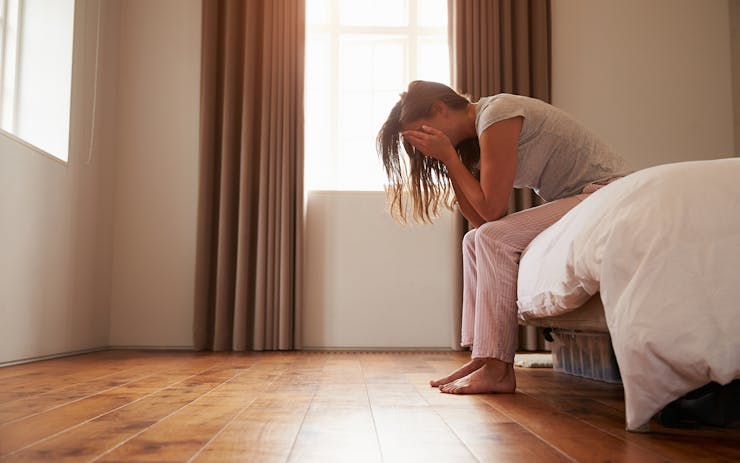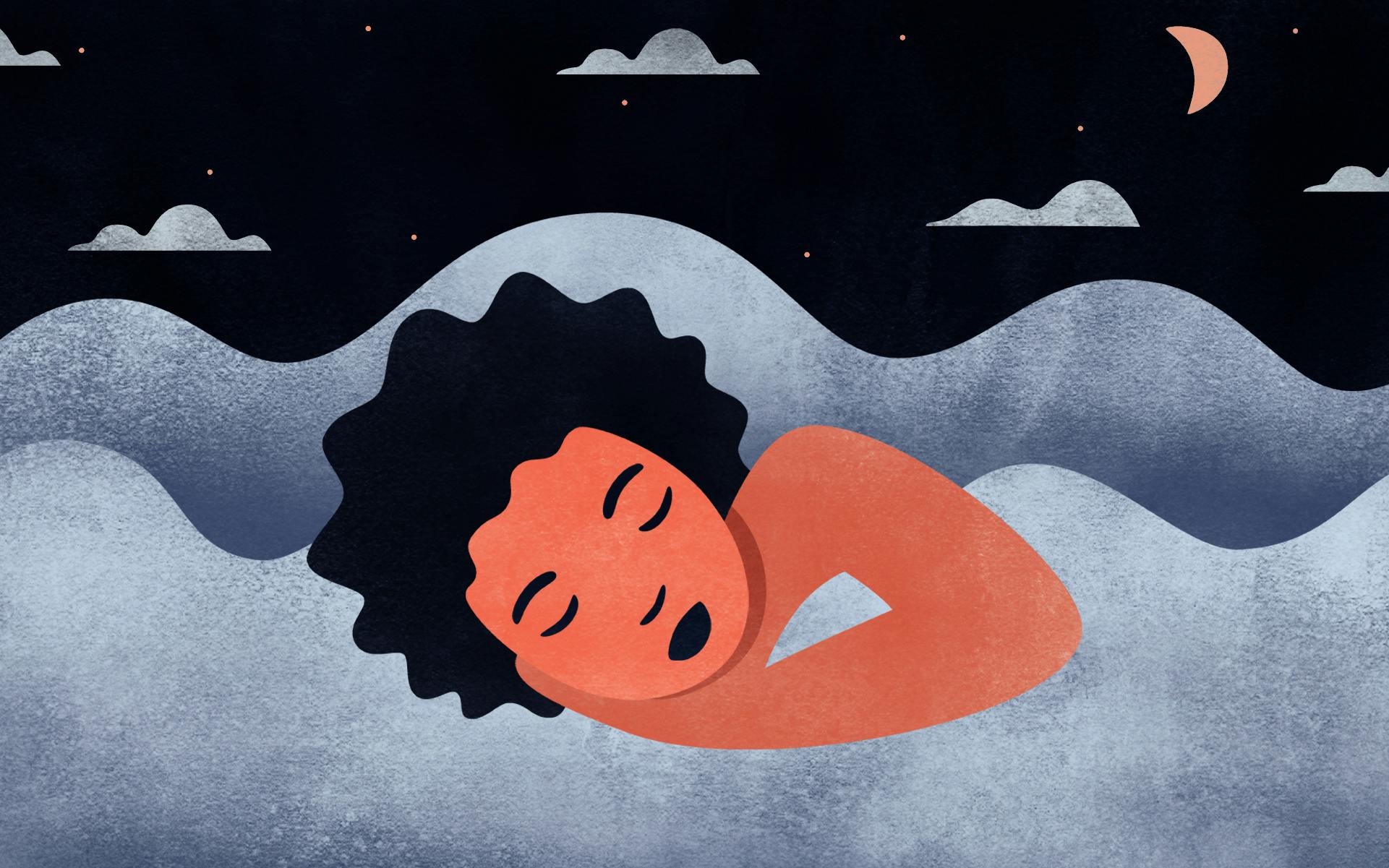Can’t fall asleep. Can’t stay asleep. The hours creep by. The ticking clock is as loud as a locomotive.
We’re talking about insomnia, a condition so pervasive that on average 30% to 50% of American adults will suffer from it at some point in their lives. For 10% of the population, difficulty falling asleep is a chronic condition.
You probably know someone who endures it. What you may not know is that, as a woman, you’re up to twice as likely to suffer from it, according to Dr. Kimberly Babson, a leading sleep researcher who we interviewed for the second episode of Zana HealthLab – Eyes Wide Open, a podcast devoted to the intersection of clinical cannabis and insomnia (produced by Zana Medical and Leafly).
Listen to “Zana HealthLab” on Spreaker.
That makes insomnia much more than a nuisance. It’s time to call it what it is: An epidemic.
Anxiety, hormonal shifts, and aging cause much more insomnia among women than men.
Babson, formerly the principal investigator at the Veterans Administration’s National Center for PTSD, now conducts clinical research on sleep disorders for Jazz Pharmaceuticals. She stresses the importance of identifying “comorbid conditions,” or the concurrent illnesses and disorders that cause insomnia, as a pathway towards successfully treating insomnia. A primary focus of her research is on the use of cannabis to treat insomnia.
When it comes to women and insomnia, there are unique complicating factors. The hormonal shifts associated with perimenopause and menopause affect sleep cycles, as does the aging process itself. And two of insomnia’s most common comorbid conditions—anxiety and PTSD—are far more common in women than in men.
Fortunately, cannabis can be an effective treatment for insomnia in both genders, although it can affect men and women differently.
Cannabis presents intriguing opportunities to combat insomnia. For one, it’s already among the top reasons people turn to clinical cannabis in the first place. There are strong indications that the wave of research and clinical data unleashed by the rising tide of legalization will yield far more nuanced and practical data—like hard facts on cannabinoids like CBD—to further refine and target its use. For those suffering from insomnia, legalization can’t come soon enough, as many of the other treatments commonly available today are notoriously ineffective.
While most physicians in the United States are unfamiliar with cannabis in the clinical context, resistance to it is far less entrenched than you might suppose.
We interviewed Dr. Jordan Tishler, a Harvard-trained expert in holistic care in Zana HealthLab – Eyes Wide Open. He says that his colleagues are far more curious than skeptical. He’s optimistic about cannabis’ potential to combat insomnia, but he stresses the need to treat it with the same rigor and protocols as any other medicine.
The irony, of course, is that cannabis has been used as medicine—for insomnia, among many other conditions—for nearly 5,000 years. Only recently, though, have Western researchers turned a clinical eye towards it in force. This clinical focus is starting to yield tangible results, though researchers are nearly unanimous in cautioning that more data is needed.
Better-curated dispensaries already stock sleep-focused strains, tinctures, vapes and edibles. It’s easy to imagine a routine medical appointment in the future including an endocannabinoid workup for the purposes of prescribing precisely targeted cannabis treatments.
Shop highly rated dispensaries near you
Showing you dispensaries nearUntil then, most patients will have to make do with the current roster of cannabis products, relying on the advice of an experienced budtender and their own trial-and-error. Fortunately, there’s no shortage of new products and approaches added every day.
For more information on cannabis and insomnia, subscribe to the full Zana HealthLab – Eyes Wide Open podcast on iTunes.






